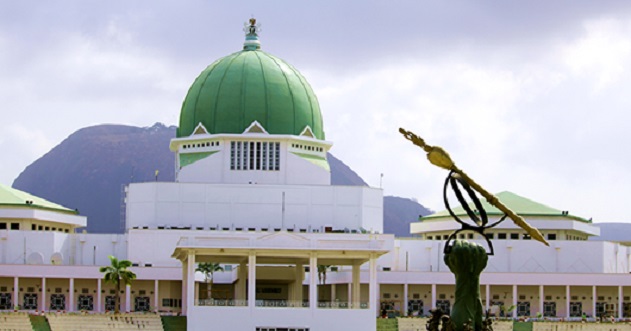Politics
N’Assembly concludes work on fourth version of electoral amendment bill

The Senate and the House of the Representatives Joint Committee on Electoral Matters on Tuesday, adopted the fourth version of the 2018/2019 Electoral Amendment Act.
The joint Committee Chairman, Suleiman Nazif (Bauchi North), gave the update on the outcome of the proposed amendment to Electoral bill at a joint press briefing in Abuja.
He also disclosed that National Assembly was now on the same page with the executive arm of government and Independent National Electoral Commission (INEC) on the issues of clauses in the bill.
The 14 consolidated amendments are: Sections 9 (1a), 9b (5), 181-4), 19(4), 31, 31(1), 31(7), 36(3), 44(3 & 4), 67a-d (6-9), 87(2), 87(14) and 112(4) while 34(2-4) was deleted.
According to him, the fourth version of the amendment will strengthen INEC to ensure free and fair election 2019.
He expressed optimism that the fourth amendment bill had addressed all controversies raised by the Executive which led to President Muhammadu Buhari’s decision to withhold assent thrice.
According to him, the joint committee came up with additional amendments based on the draft submitted by the Executive arm.
He added that the first electoral amendment bill which addressed the issue of sequence of elections also made provision for card reader as well as the powers of National Assembly to legislate for Local Government Councils, which the President declined assent.
Read also: Tambuwal reveals what he’ll do if he fails to emerge PDP presidential candidate
He also said the second electoral amendment bill which was concluded on June 26, 2018 addressed all issues raised by the Executive.
The chairman explained that part of the issues raised by the Executive was the sequence of elections, which the National Assembly has resolved to delete in the second amendment.
“I want you to know that the National Assembly, INEC and the Executive are on the same page,” Mr Nazif said.
Mr Nazif maintained that the third electoral amendment bill had the card reader but Mr. President withheld assent on July 26, 2018 which coincided with the day the both chambers embarked on annual recess.
He observed that the “third bill supposed to be an addendum to the second one which had 41 amendments,” adding that the “third bill had 14 clauses and 15 citations, aimed at strengthening the second amendment.
“What we wanted in the third bill was to strengthen the second one which was to make INEC work easier,” hence did not include the card reader.
“What the Executive wanted is the merger of the second and third ones. So we want to strengthen INEC and make sure the 2019 election is free and fair; we have come up with the fourth version,” Mr Nazif said.
RipplesNigeria… without borders, without fears
Click here to join the Ripples Nigeria WhatsApp group for latest updates.
Join the conversation
Support Ripples Nigeria, hold up solutions journalism
Balanced, fearless journalism driven by data comes at huge financial costs.
As a media platform, we hold leadership accountable and will not trade the right to press freedom and free speech for a piece of cake.
If you like what we do, and are ready to uphold solutions journalism, kindly donate to the Ripples Nigeria cause.
Your support would help to ensure that citizens and institutions continue to have free access to credible and reliable information for societal development.






















